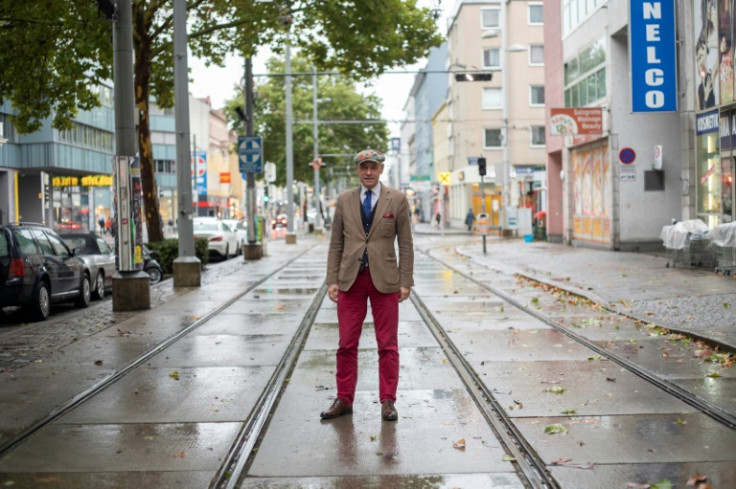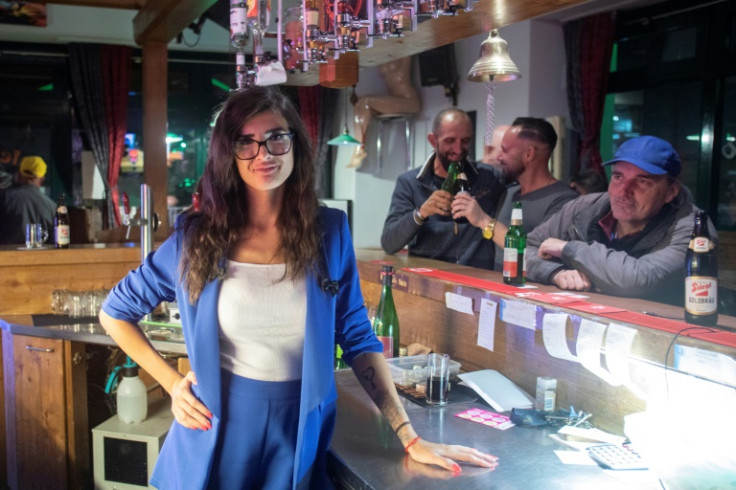
"Austrians need to be put first in their own country again," said widowed retiree Monika Skoff, echoing what many far-right voters who fear falling behind see as the main issue in the country's election this week -- migration.
The 69-year-old lives on a pension of 1,080 euros ($1,200) a month and said she is having to save up for months to replace a broken washing machine.
"Migration is a problem -- and the money that's being spent on all the migrants. As an Austrian, you don't stand a chance," she said.
With the far-right Freedom Party (FPOe) tipped to win Sunday's national vote for the first time, AFP joined a pub crawl organised by the party on the outskirts of Vienna to speak to its supporters.
Austria nowadays is "a catastrophe and something needs to change", said Skoff, who has been voting for the party founded by former Nazis since she was 20 years old.
Apart from migration -- one of the FPOe's main topics -- and the soaring cost of living, Skoff was also angry over how she said the government, a conservative-led coalition with the Greens, "mismanaged" the Covid pandemic.
The FPOe is most popular among voters aged between 30 and 59, according to a recent survey.
Its voters are more likely to live in rural areas rather than big cities, be less educated and have a more pessimistic view of the world, the survey found.
While its base was predominantly male for years, this has been changing, with more women than men predicted to vote FPOe on Sunday.
Smartly dressed Gero Stuller was worried about Austria's "very high budget deficit" and the risk it poses to its "social system including social benefits". Not enough is being done to support working people, he told AFP at one of his favourite bars.
The 51-year-old, who works in health administration, agrees with the "fundamentally meritocratic" FPOe ideas to whip Austria's flagging economy into shape.
A loyal supporter of the party for more than 20 years, Stuller also said Austria should remain neutral at a time when Sweden and Finland joined NATO in the wake of Russia's invasion of Ukraine.
Mirroring the FPOe's official party line -- which critics claim is pro-Russian -- he said the commitment to neutrality should be maintained "in both good and bad times", adding Austria could provide assistance but not military aid.
A more recent supporter, 28-year-old waitress Adriana Radovic, said the party "takes a great interest in people and is always ready to help", citing a fundraiser set up for locals hit by a fire.
The single mother, who works part-time at a bar owned by her family, said one driving force behind the party's success was its leader Herbert Kickl, who makes an effort to talk to people, and "listens to their concerns and ideas, unlike many other politicians".
Skoff said she even considered Kickl a "pal" after talking to him on several occasions, because he was standing up for the problems "weighing down on ordinary working people -- work, money, and rights".
Kickl took over a scandal-tainted FPOe in 2021, reviving its popularity after it slumped in the last national elections in 2019.
Asked about the corruption scandals that have repeatedly rocked the FPOe, Skoff dismissed them saying the politicians involved were trapped by the party's foes.









